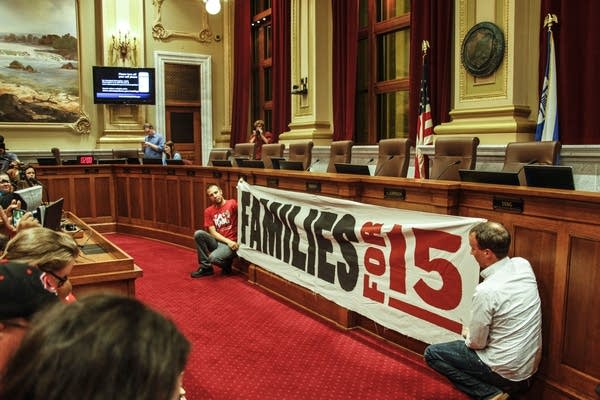Minneapolis council approves $15 an hour minimum wage

Two men open a banner showing the support of families to raise the minimum wage to a $15 at city hall in Minneapolis.
Maria Alejandra Cardona | MPR News
Go Deeper.
Create an account or log in to save stories.
Like this?
Thanks for liking this story! We have added it to a list of your favorite stories.


